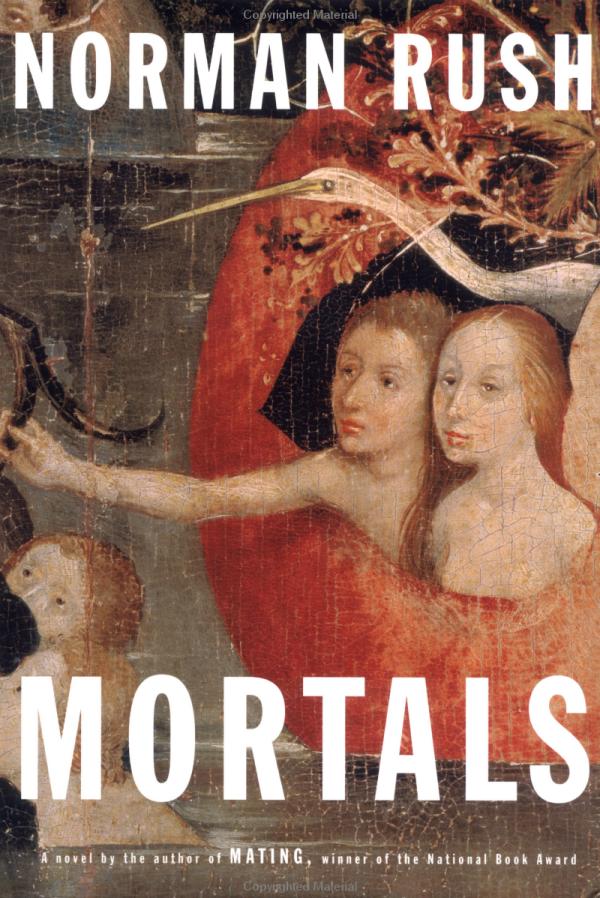Norman Rush is one of the most lauded literary novelists currently at work in America. He won the National Book Award for his first novel, Mating. Mortals, his accomplished second novel, is a hugely ambitious 700-page monster that's just been released in paperback.
Set in Botswana in the early '90s, the novel's heroic anti-hero is a middle-aged Milton scholar who teaches English lit at a secondary school in Gaborone, the capital of Botswana. Ray Finch loves teaching, he loves Milton, he loves living in Africa and he loves his smart, sexy wife, Iris. What he loves even more than any of these things, though, is his not-so-secret second job as a CIA operative.
Ray can be petty and pretentious, but his spying skills are indisputable. He's hyper-intelligent and so observant he's almost freakish. He realizes, for example, that Iris is miserable even before she seems to notice herself, but at the beginning of the book he's too absorbed with CIA business to fret over this much. That soon changes.
Ostensibly as part of his job, Ray takes an interest in a Black American doctor named Davis Morel. Morel recently migrated to Botswana to undertake a bizarre mission to rid the African continent of Christianity, which he believes is indirectly responsible for everything from poverty to drought to violent upheaval to the looming AIDS epidemic. Ray's obsession with Davis grows even more acute when he begins to suspect that Davis has become his wife's lover.
Meanwhile, the primitive northwest quadrant of the country is simmering with a homegrown rebellion that's pumped up by Ray's inept superiors in the CIA. Soon the Botswana countryside is rupturing into grotesque bouts of violence, and both Ray and Davis are caught in the middle of the mess.
Mortals is fueled by dense language and intricately interwoven political, moral and literary themes. Even so, it's a pretty damn entertaining read. The main characters—Ray, Davis and especially Iris—are enigmatically multi-dimensional. It's easy to get wrapped up in these people and their problems, large and small. The verbal exchanges between Ray and Iris are particularly smart, even if they often seem a little too clever to believe.
Unlike in Conrad's novel, the heart of darkness here has less to do with Western imperialism than with the skin-flaying torture of enduring a disintegrating marriage, a torment made all the more painful by the obvious fact that Ray and Iris are so ideally suited to each other.
In a novel this fat, there are going to be flat moments. Ray's intellectual posturing can be irritating at times, and the constant literary name-dropping can get tiring. But these flat moments are surprisingly few and far between. Mortals boasts an epic global and historical scope that somehow manages to remain focused on the small-scale drama of an insecure man losing the love of a near-perfect woman. Somehow, Rush has managed to make this unlikely mix work.









